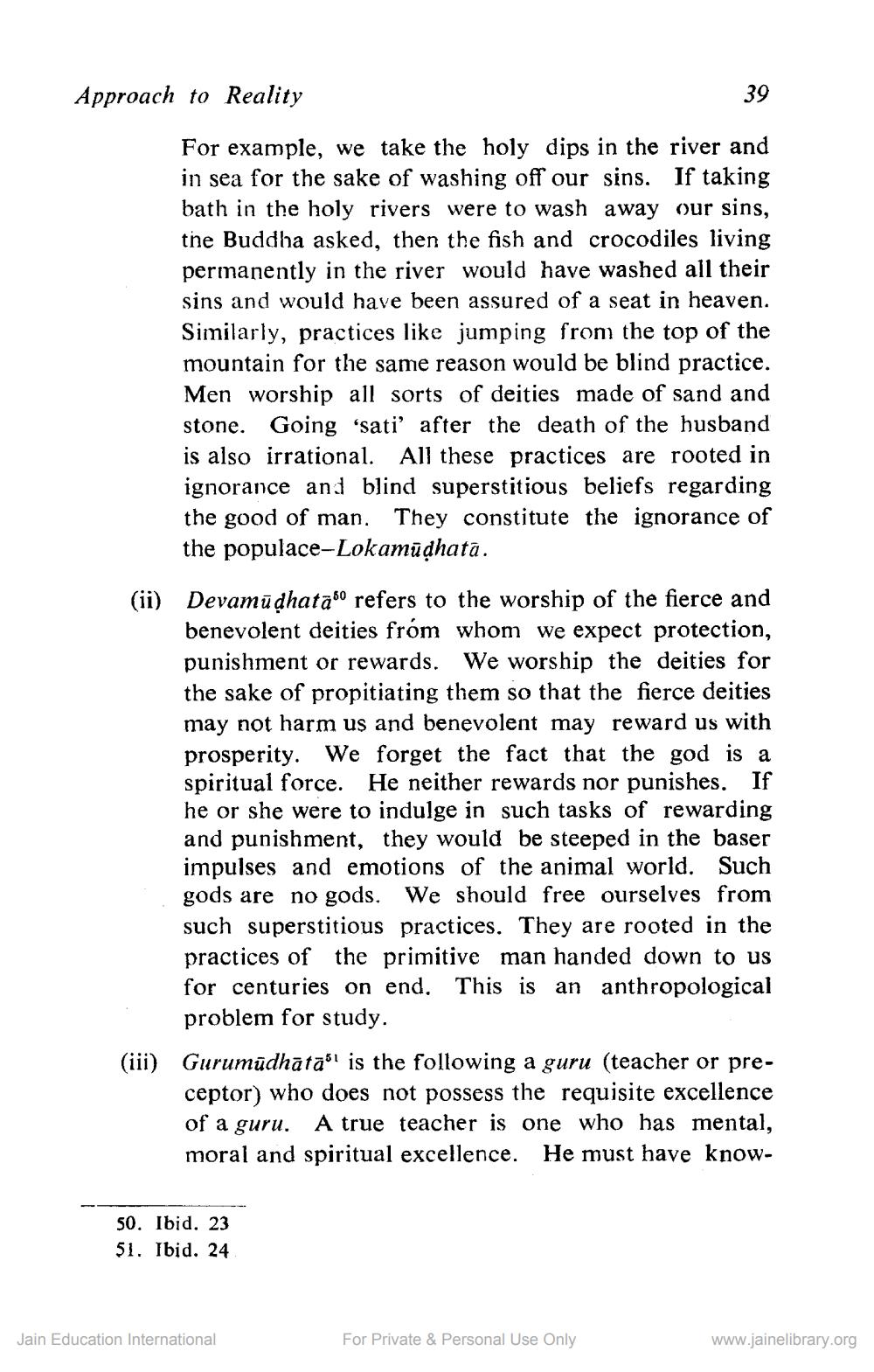________________
39
For example, we take the holy dips in the river and in sea for the sake of washing off our sins. If taking bath in the holy rivers were to wash away our sins, the Buddha asked, then the fish and crocodiles living permanently in the river would have washed all their sins and would have been assured of a seat in heaven. Similarly, practices like jumping from the top of the mountain for the same reason would be blind practice. Men worship all sorts of deities made of sand and stone. Going 'sati' after the death of the husband is also irrational. All these practices are rooted in ignorance and blind superstitious beliefs regarding the good of man. They constitute the ignorance of the populace-Lokamūḍhatā.
Approach to Reality
(ii) Devamūḍhata" refers to the worship of the fierce and benevolent deities from whom we expect protection, punishment or rewards. We worship the deities for the sake of propitiating them so that the fierce deities may not harm us and benevolent may reward us with prosperity. We forget the fact that the god is a spiritual force. He neither rewards nor punishes. If he or she were to indulge in such tasks of rewarding and punishment, they would be steeped in the baser impulses and emotions of the animal world. Such gods are no gods. We should free ourselves from such superstitious practices. They are rooted in the practices of the primitive man handed down to us for centuries on end. This is an anthropological problem for study.
(iii) Gurumādhātā1 is the following a guru (teacher or preceptor) who does not possess the requisite excellence of a guru. A true teacher is one who has mental, moral and spiritual excellence. He must have know
50. Ibid. 23
51. Ibid. 24
Jain Education International
For Private & Personal Use Only
www.jainelibrary.org




